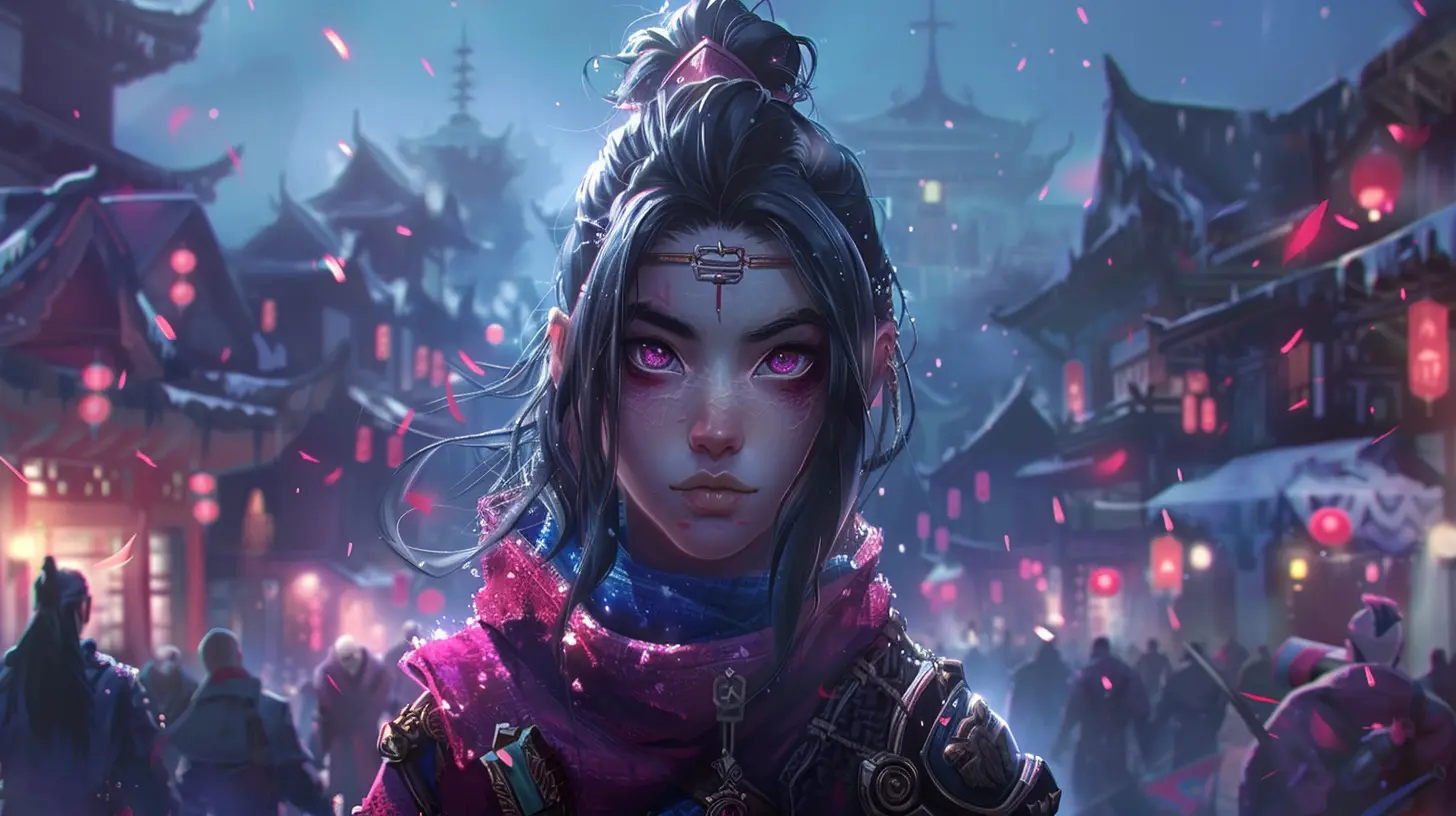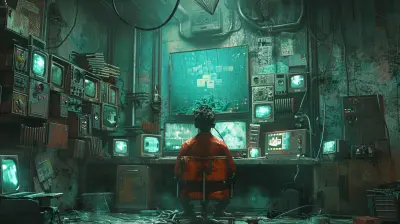Are Microtransactions Turning Games into Pay-to-Win Experiences?
3 January 2025
Microtransactions – the infamous buzzword that’s been both a blessing and a curse for the gaming industry. Whether you’re a dedicated gamer or just someone who occasionally dabbles in mobile games while waiting for your pizza to arrive, chances are you've encountered microtransactions. They’ve become so deeply entrenched in gaming culture that it’s almost impossible to avoid them. But here’s the million-dollar question (pun intended): are microtransactions turning games into pay-to-win experiences?
Let’s grab a health potion, sit down, and unpack this controversial topic. Spoiler alert: there’s a lot to discuss.
What Are Microtransactions, Anyway?
Before we dive into the nitty-gritty, let’s make sure we’re all on the same page. Microtransactions are small, in-game purchases that players can make using real money. They might include anything from new character skins and weapon upgrades to loot boxes filled with random goodies.On the surface, microtransactions might seem innocent enough. Want a cool new outfit for your favorite character? Sure thing, just fork over a few bucks. Need an energy refill to keep playing your mobile game? That’ll cost you. But here’s where things start to get murky – when those purchases begin to affect gameplay, balance, or competitiveness.
Pay-to-Win: What’s the Deal?
Pay-to-win (P2W) happens when spending real money gives players a distinct advantage over others. Imagine battling it out with someone in an online game, only to find out they have better gear, higher stats, or exclusive abilities – all because they paid extra. Feels pretty unfair, right? It’s like running a race where your opponent bought rocket shoes while you’re stuck with regular sneakers.The concept of pay-to-win isn’t new, but it’s become increasingly prevalent thanks to the rise of microtransactions. Plenty of games – from mobile titles to AAA blockbusters – have been accused of leaning into this model.
How Did Microtransactions Become So Common?
To understand how we got here, we need to take a quick trip down memory lane. Back in the day, you’d buy a game, and that was that. You owned the full experience. You didn’t have to worry about shelling out extra cash just to enjoy the content or level the playing field.But as the industry evolved, so did the business models. Developers and publishers started looking for ways to generate ongoing revenue. Enter microtransactions. Initially, they were introduced in free-to-play games as a way to fund development, which makes sense. After all, if the game is free, the creators still need to earn a living, right?
The problem? Microtransactions didn’t stay confined to free-to-play games. They started creeping into full-priced games, and that’s where things started to get... messy.
Good Microtransactions vs. Bad Microtransactions
Not all microtransactions are created equal. There’s a big difference between cosmetic-only purchases and pay-to-win mechanics.Cosmetic Microtransactions
Cosmetic microtransactions are generally harmless. They let players personalize their characters, weapons, or vehicles without impacting gameplay. Want a fancy dragon-themed armor set or a neon-pink car? Go for it. Whether you buy it or not, your performance in the game remains the same. These are the kind of microtransactions most gamers can live with – they’re optional, non-intrusive, and purely for fun.Pay-to-Win Microtransactions
Then there’s the dark side – microtransactions that influence gameplay. These could include things like buying stronger weapons, faster cars, or power-ups that give you a competitive edge. In extreme cases, some games even lock key features, levels, or characters behind a paywall, forcing players to either grind endlessly or cough up cash.This is where the pay-to-win label comes into play. It creates a divide between those willing to spend money and those who aren’t (or can’t). And let’s be real – nobody likes feeling like they’re being left in the dust because they didn’t swipe their credit card. It’s frustrating, demoralizing, and, quite frankly, it can ruin the entire gaming experience.
Why Pay-to-Win Models Are Problematic
Pay-to-win microtransactions aren’t just irritating – they’re harmful to the gaming community as a whole. Here’s why:1. Fairness Goes Out the Window
Gaming is supposed to be about skill, strategy, and creativity. But when someone can buy their way to victory, it throws fairness out the window. Why bother improving your skills when you can just outspend your opponents?2. Ruins Player Experience
Nobody likes being constantly reminded that they can’t compete unless they open their wallet. It takes the fun out of gaming and replaces it with frustration. Games are supposed to be an escape, not a source of stress.3. Predatory Practices
Some developers and publishers have been accused of designing games in a way that intentionally nudges players toward spending money. Whether it’s through grindy gameplay, time-gated content, or flashy temptation (looking at you, loot boxes), these tactics often feel manipulative.4. Divides Communities
Pay-to-win mechanics can create a rift between players who spend money and those who don’t. It fosters resentment and breaks down the sense of camaraderie that gaming communities thrive on.Can Microtransactions Be Done Right?
Despite their bad rap, not all microtransactions are evil. When implemented thoughtfully, they can benefit both players and developers. Here are a few ways microtransactions can be done right:1. Keep It Cosmetic
Focus on selling cosmetic items that don’t impact gameplay. Let players express themselves through unique skins, emotes, or customizations without giving them an unfair advantage.2. Offer Value, Not Pressure
Make microtransactions optional and non-intrusive. Players should never feel like they’re being forced to spend money to enjoy the game.3. Be Transparent
Clearly communicate what players are paying for. If it’s a loot box, show the odds. If it’s a DLC, outline exactly what’s included. Transparency builds trust.Are We Stuck with Pay-to-Win?
So, are microtransactions turning games into pay-to-win experiences? In some cases, absolutely. But it’s not a one-size-fits-all scenario. While there are plenty of games that abuse microtransactions to the detriment of players, there are just as many titles that avoid pay-to-win mechanics entirely.As gamers, we vote with our wallets. If we stop supporting games that prioritize profits over fair gameplay, developers will take notice. And while it’s not easy, it’s worth speaking up. Join forums, leave reviews, and let publishers know when you feel like something isn’t right.
The gaming landscape is always changing, and while microtransactions are here to stay, it doesn’t mean we have to settle for pay-to-win. With enough pushback from players, we can steer the industry toward a better, fairer future.
Final Thoughts
Microtransactions have become a double-edged sword in modern gaming. On one hand, they can support developers and enhance games with optional extras. On the other hand, they can be predatory and unfair when they cross into pay-to-win territory.As players, we have the power to influence the industry by choosing which games to support and by holding developers accountable. So, the next time you see a tempting microtransaction, ask yourself: is this worth it? Because at the end of the day, gaming should be about skill, fun, and community – not about who has the deepest pockets.
all images in this post were generated using AI tools
Category:
MicrotransactionsAuthor:

Avril McDowney
Discussion
rate this article
11 comments
Milena Wood
It’s disheartening to see how microtransactions can overshadow the joy of gaming. Players should feel rewarded for their skills and dedication, not pressured to spend to enjoy their experience. Let’s advocate for a balanced approach that respects both the community and the integrity of our beloved games.
February 3, 2025 at 4:26 AM

Avril McDowney
I completely agree. Striking a balance is crucial to ensure that skill and dedication shape the gaming experience, rather than financial investment. Advocating for fair practices will benefit both players and the gaming community as a whole.
Owen Garcia
Microtransactions can enhance or hinder gaming experiences. While they offer players optional content, they often create disparities between paying and non-paying users, leading to a frustrating pay-to-win dynamic. Game developers should focus on fair monetization strategies that maintain gameplay balance and ensure enjoyment for all players, regardless of spending.
February 1, 2025 at 6:01 AM

Avril McDowney
You raise important points about the impact of microtransactions on gaming. Striking a balance between optional content and fair play is crucial for maintaining an enjoyable experience for all players. Developers must prioritize equitable monetization strategies to avoid the pitfalls of a pay-to-win dynamic.
Phoenix Barnes
This is a fascinating topic! Microtransactions spark such diverse opinions. While some argue they enhance gameplay, others fear they compromise fairness. It’s intriguing to explore how different games handle this balance and how player experiences evolve. Looking forward to more discussions on this issue!
January 28, 2025 at 4:30 AM

Avril McDowney
Thank you! It's definitely a complex issue, and I appreciate your insights. The balance between enhancing gameplay and maintaining fairness is crucial for player satisfaction. Looking forward to diving deeper into this topic!
Simone Forbes
Great article! While microtransactions can be frustrating, they don't have to ruin the fun. It’s all about balance—developers can create engaging experiences without breaking the bank! Let’s keep supporting games that value creativity over cash. Game on, everyone!
January 22, 2025 at 5:31 PM

Avril McDowney
Thank you for your thoughtful comment! I completely agree—balance is key, and supporting creativity in gaming is essential for maintaining enjoyable experiences. Game on!
Kane McClary
Microtransactions are indeed eroding fair competition, transforming gaming into a pay-to-win model. It's time to prioritize player experience over profit margins.
January 19, 2025 at 3:42 PM

Avril McDowney
Thank you for your comment! I agree that prioritizing player experience is essential, and finding a balance between profitability and fairness is crucial for the future of gaming.
Sarah McNeal
It's tough to see passion turn into paywalls; we understand.
January 15, 2025 at 3:39 PM

Avril McDowney
Thank you for your understanding! Balancing passion and monetization is indeed challenging in the gaming industry.
Drift McAnally
This is a crucial discussion. While microtransactions can enhance experiences, it’s concerning when they overshadow gameplay. Balancing monetization with fair play is vital for maintaining the integrity and enjoyment of games.
January 12, 2025 at 5:27 PM

Avril McDowney
Thank you for your insightful comment! Balancing monetization and gameplay integrity is indeed essential to ensure enjoyable experiences for all players.
Ian Ortiz
Microtransactions can undermine game balance, shifting focus from skill to spending. While they can fund ongoing development, the risk of creating a pay-to-win model erodes player trust and engagement, ultimately detracting from the core gaming experience.
January 10, 2025 at 4:13 PM

Avril McDowney
You're right; microtransactions can indeed shift the focus from skill to spending, potentially harming game balance and player trust. Balancing monetization with fair gameplay is crucial to maintaining a positive gaming experience.
Ashira Gomez
Microtransactions can skew balance, making pay-to-win elements frustrating. Skill should prevail over spending; developers need to prioritize fair gameplay.
January 5, 2025 at 3:36 AM

Avril McDowney
I agree – fairness in gameplay is essential. Developers should focus on creating balanced experiences that reward skill over spending to maintain player engagement and satisfaction.
Faelan Henderson
Microtransactions can blur the line between skill and financial investment, often favoring those who spend more. This shift risks undermining the core gaming experience, where player ability should be paramount. Striking a balance is essential to preserve fair competition and enjoyment.
January 4, 2025 at 4:09 AM

Avril McDowney
I appreciate your insight! Striking that balance is crucial to ensure that skill remains the focus in gaming, rather than financial investment.
Vera McKeever
Microtransactions can unfairly tip the balance, making skill secondary to spending. It's frustrating for dedicated players.
January 3, 2025 at 4:18 PM

Avril McDowney
I understand your frustration. While microtransactions can create an uneven playing field, many developers strive to balance monetization with fair gameplay. It's an ongoing challenge in the industry.
MORE POSTS

How to Outsmart Your Opponent in Quick Rush Situations

How Some Developers Are Innovating Microtransaction Systems

Breaking the Fourth Wall: Meta-Narratives in Game Design

Epic Games Store’s Most Anticipated Upcoming RPGs

The Rise of Space-Themed RTS Games and What Makes Them Unique

How Steam Achievements Make Games More Fun

Microtransactions and Gameplay Balance: Finding the Sweet Spot

Designing AI for a Dynamic and Responsive Gameplay Experience